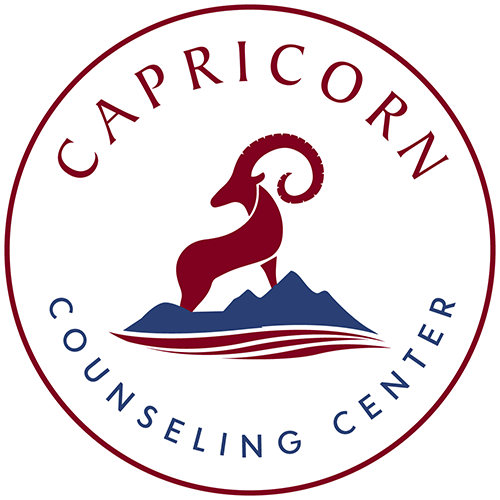Year End Objectives
From Reflection to Action: Achieving Your Year-End Goals and New Year Resolutions
As we approach the end of another year, it’s the perfect time to pause and reflect on our achievements and set our sights on what lies ahead. Are you ready to transform your year-end goals into successful new year resolutions? Achieving goals and fostering personal growth often start with effective goal setting, and as we wrap up this year, it’s an opportune moment for introspection and planning. Whether you’re an individual seeking personal growth, a couple aiming to strengthen your bond, or a family striving for harmony, the transition from reflection to action can be incredibly empowering. How can you turn your aspirations into reality and set the stage for a fulfilling new year? Let’s explore practical strategies to support your journey and promote your well-being.

Reflecting on Year End Goals
Acknowledge Past Achievements
Taking the time to acknowledge your past achievements is a crucial step in the process of achieving your year-end goals. It can be easy to overlook how much you’ve accomplished when you’re focused on what still needs to be done. Reflecting on your successes, no matter how small, can provide a valuable boost to your confidence and motivation. Consider what year-end goals you set out to achieve and note the progress you’ve made. This reflection can help you understand your strengths and identify areas of personal growth. Have you taken steps towards new year resolutions that seemed daunting at first? Recognizing these victories can set a positive tone for future goal setting. Remember, each achievement is a stepping stone on your journey to personal growth. By appreciating where you’ve been, you can more effectively plan where you want to go.
Identify Areas for Improvement
Once you’ve acknowledged your achievements, it’s time to identify areas for improvement. This step is essential for effective goal setting and personal growth. Reflect on the challenges you faced in reaching your year-end goals. Were there obstacles that repeatedly hindered your progress? By analyzing these difficulties, you can gain insights into patterns that may need adjusting. Don’t view these areas as failures but as opportunities for growth. Perhaps you need to develop new skills, such as time management or communication, to better achieve your new year resolutions. Consider seeking feedback from trusted friends or family members to gain an external perspective on your areas for improvement. Identifying these areas is not about being self-critical; it’s about empowering yourself to make positive changes. With a clear understanding of where you can improve, you’ll be better equipped to turn aspirations into reality and set the stage for a successful new year.
Setting New Year Resolutions
Creating Realistic Goals
Creating realistic goals is a vital part of setting new year resolutions. While it’s tempting to aim high, setting overly ambitious goals can lead to frustration and burnout. Instead, focus on crafting goals that are challenging yet achievable, aligning them with your personal growth journey. Start by breaking larger goals into smaller, manageable steps, which can make the process less overwhelming and more rewarding. Consider using the SMART criteria—specific, measurable, achievable, relevant, and time-bound—as a guide to ensure your goals are well-defined and realistic. For example, if your aim is to improve your mental health, a realistic goal might be to practice mindfulness for 10 minutes daily. This approach makes it easier to track progress and stay motivated. Remember, the purpose of setting new year resolutions is to foster a positive change in your life, so ensure that your goals are both attainable and meaningful to you.
Prioritizing Personal Growth
When setting new year resolutions, prioritizing personal growth is essential. Personal growth is a lifelong journey that involves developing skills, improving self-awareness, and enhancing your overall well-being. Begin by evaluating which areas of your life require more focus. Whether it’s emotional health, professional development, or improving relationships, prioritize what will bring you the most fulfillment. Make these aspects central to your new year resolutions. By doing so, you’re not only working towards achieving goals but also fostering a deeper sense of satisfaction and purpose. Consider setting resolutions that align with your values and long-term vision. For instance, if continuous learning is important to you, a resolution could be to read one book a month related to personal development. By prioritizing personal growth, you’ll find that your resolutions become more meaningful and lead to lasting changes. This focus can empower you to transform aspirations into tangible improvements in your life.
Strategies for Achieving Goals
Developing an Action Plan
To achieve your year-end goals and support your new year resolutions, developing an action plan is crucial. An action plan serves as a roadmap to guide your efforts and keep you on track. Start by listing the specific steps needed to reach each goal, breaking them down into manageable tasks. Assign deadlines to these tasks to create a sense of urgency and accountability. Consider using tools like planners or digital apps to organize and monitor your progress. This structured approach helps maintain focus and motivation, especially during challenging times. Additionally, anticipate potential obstacles and strategize ways to overcome them. This preparedness can make it easier to navigate setbacks without losing sight of your goals. By having a clear action plan, you can transform your aspirations into achievable steps, leading to greater personal growth and success. Remember, the key is consistent effort and adaptability as you work towards realizing your resolutions.
Overcoming Common Obstacles
As you work towards achieving your goals, encountering obstacles is inevitable. Recognizing and overcoming these challenges is a key part of the journey. Common obstacles include time constraints, lack of motivation, and fear of failure. To tackle these, start by setting realistic expectations for yourself and being flexible with your plans. If time management is an issue, prioritize tasks and eliminate non-essential activities. For motivation dips, remind yourself of the reasons behind your goals and celebrate small victories to maintain momentum. When fear of failure arises, shift your mindset to view setbacks as learning experiences rather than defeats. Seeking support from friends, family, or a therapist can also provide encouragement and new perspectives. By proactively addressing these obstacles with practical strategies, you can sustain your progress and continue moving forward. Remember, perseverance and resilience are crucial elements in turning your new year resolutions into reality and achieving personal growth.

